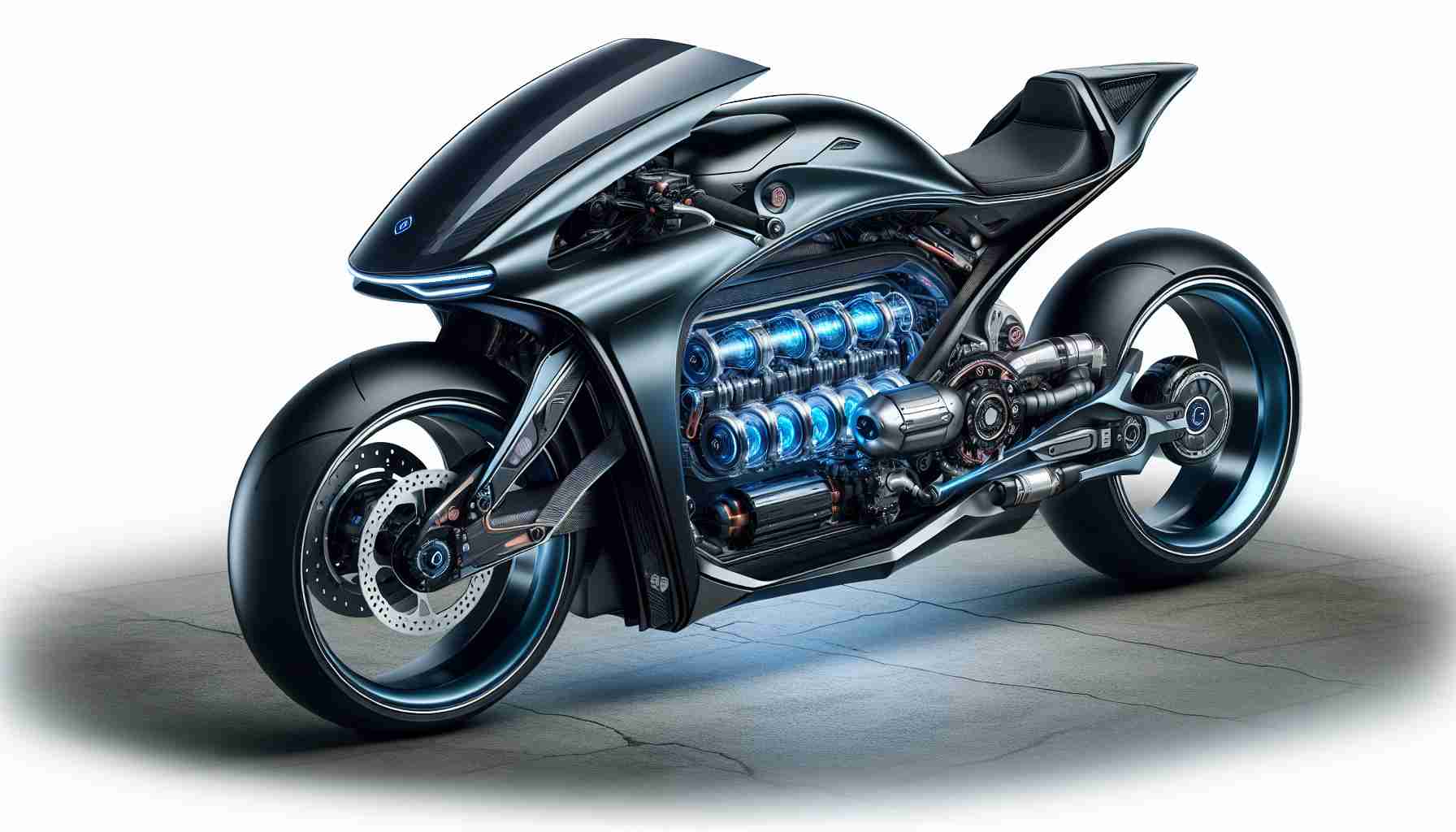Yamaha Motor Corporation, the legendary Japanese brand known for its high-performance motorcycles and marine products, is making waves in the automotive industry with its groundbreaking hydrogen engine technology. While electric vehicles (EVs) have gained traction as an alternative to conventional combustion engines, Yamaha has set its sights on decarbonizing the roads in a unique way.
Partnering with Toyota Motor Corporation, Yamaha has developed a hydrogen-fueled engine that could surpass traditional combustion engines in terms of efficiency and environmental impact. This collaboration resulted in the creation of a 5.0-liter V8 engine capable of running on 100% hydrogen, with zero emissions. By modifying crucial components such as injectors, cylinder heads, and intake manifold, Yamaha optimized the engine for better hydrogen combustion.
This hydrogen V8 engine showcases impressive features that put it on par with its gasoline counterparts:
1. Modified Components: Yamaha’s engineering team modified key components to enhance hydrogen combustion and improve overall performance.
2. Power Output: The engine delivers an impressive 450 horsepower at 6,800 rpm, showcasing its remarkable power potential.
3. Torque: With an optimum torque of 540 Nm at 3,600 rpm, the hydrogen engine exhibits excellent acceleration capabilities.
4. Unique Exhaust Note: The 8-into-1 exhaust manifold provides a distinct high-frequency sound, adding to the engine’s character.
Yamaha’s engineers aimed to create a driving experience that is both seamless and engaging. The team strived to achieve what they call “Kanno Seino,” a sensation of sensual and exhilarating performance. This focus on delivering a satisfying driving experience distinguishes Yamaha’s hydrogen engine from others in the market.
But Yamaha’s foray into hydrogen-powered transportation doesn’t stop at cars. The company has also introduced other vehicles that are set to be decarbonized using hydrogen. One notable example is the hydrogen electric outboard engine, which made its debut at the Miami International Boat Show. This groundbreaking innovation marks the world’s first application of hydrogen-powered motorization in the marine industry.
Furthermore, Yamaha Golf-Car Company has unveiled the Drive H2, a golf cart powered by a hydrogen engine. This four-seater golf car boasts features such as two 25-liter high-pressure hydrogen tanks, offering an estimated driving range of approximately 160 km (100 miles). Refueling the cart takes just three minutes, and the only emission it produces is water vapor.
In a surprising move, Yamaha also presented a hydrogen-powered recreational off-highway vehicle. This concept vehicle showcases a direct injection hydrogen-burning engine that emits no CO2, making it a compelling example of off-road decarbonization.
Yamaha’s hydrogen engine represents a significant shift in the automotive industry. Not only does it serve as a viable alternative to EVs, but it also accelerates the decarbonization process with its water-based prototypes that emit only steam. The integration of hydrogen as a fuel source in internal combustion engines is a remarkable development that showcases Yamaha’s commitment to creating a sustainable transportation future.
Frequently Asked Questions
Q: What is Yamaha Motor Corporation known for?
A: Yamaha Motor Corporation is known for its high-performance motorcycles and marine products.
Q: What is Yamaha’s partnership in the automotive industry?
A: Yamaha has partnered with Toyota Motor Corporation to develop hydrogen engine technology.
Q: What is special about Yamaha’s hydrogen engine?
A: Yamaha’s hydrogen engine is a 5.0-liter V8 engine that can run on 100% hydrogen, emitting zero emissions.
Q: What modifications were made to the engine to optimize hydrogen combustion?
A: Yamaha’s engineering team modified components such as injectors, cylinder heads, and intake manifold to enhance hydrogen combustion.
Q: What are some impressive features of Yamaha’s hydrogen engine?
A: The engine delivers 450 horsepower, has an optimum torque of 540 Nm, and provides a unique high-frequency sound from the exhaust manifold.
Q: What is the driving experience that Yamaha aimed to achieve?
A: Yamaha aimed to create a driving experience that is both seamless and engaging, called “Kanno Seino.”
Q: What other vehicles has Yamaha introduced with hydrogen-powered technology?
A: Yamaha has introduced a hydrogen electric outboard engine for boats, a hydrogen-powered golf cart called the Drive H2, and a hydrogen-powered recreational off-highway vehicle.
Q: What are the advantages of Yamaha’s hydrogen-powered golf cart?
A: The golf cart has a driving range of approximately 160 km (100 miles), can be refueled in just three minutes, and only emits water vapor.
Q: What does Yamaha’s hydrogen engine contribute to the automotive industry?
A: Yamaha’s hydrogen engine offers a viable alternative to electric vehicles and accelerates the decarbonization process with its water-based prototypes.
Key Terms and Jargon
– Decarbonizing: The process of reducing carbon emissions in various industries.
– Combustion engine: An internal combustion engine that generates power by burning fuel within a combustion chamber.
– Hydrogen-fueled engine: An engine that uses hydrogen as its primary fuel source.
– Emissions: The release of gases or pollutants into the atmosphere.
– Torque: The rotational force produced by the engine.
– Golf cart: A small vehicle used for transportation on a golf course.
– Off-highway vehicle: A vehicle designed for off-road use.
Related Links
– Yamaha Motor Corporation
– Toyota Motor Corporation
– Miami International Boat Show
